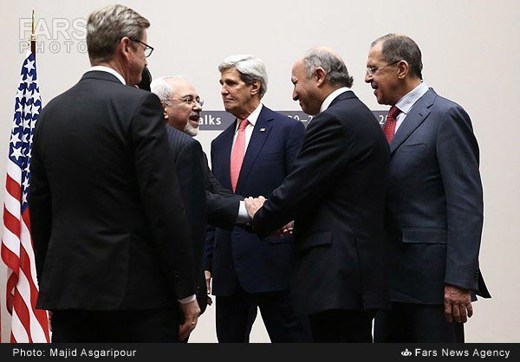Iran has recently hosted Western officials who have come to the country to talk business despite the fact that part of the sanctions are still in place. These visits show a shift of policy in the West which did not want to have economic interaction with Iran before a final nuclear deal, citing that trade transactions with Iran would breach the sanctions regime.
Arman-e Emrooz daily on March 2 ran an opinion piece by Javid Ghorban Oghli, an international relations expert, on how Western countries are impatient to invest in Iran after the possible conclusion of a final nuclear deal. The following is a partial translation of the piece:
[…]
Word has spread that a number of global giants have sent their representatives to Iran to open talks, eagerly waiting for a final deal to get into the Iranian market.
[…]
The Americans, who have been absent from Iran for more than 30 years, are putting together their plans not to let that 30-something-year absence and political disagreements stand in the way of their efforts to make a comeback to Iran.
Thus, a political deal they have raised [as part of a final nuclear deal between Iran and P5+1] is, partly, related to atomic issues, and in part, about the assurances the US needs about its active role in the Iranian market following the conclusion of a comprehensive deal.
That’s why Washington has entered a race in which it has lined up against European nations, among them Italy and France.
[…] What the US is doing could be seen as an attempt to set the stage for the future when a deal is inked with Iran.
[…]
Iran too should play its own part when it comes to the post-deal period. It needs to set up a working group to identify the country’s development needs and recognize those countries whose relations with Iran can bring more benefits to the Islamic Republic.
Unfortunately over those eight years [when Ahmadinejad was in power], Iran had ties with China, Russia and India. So, Iran needs to work on that working group which can – after the nuclear talks possibly end in a final comprehensive deal – manage the country’s ties with other nations, especially economically developed nations, in keeping with its national and development needs.
